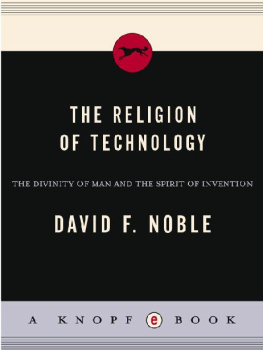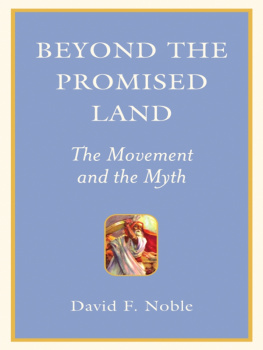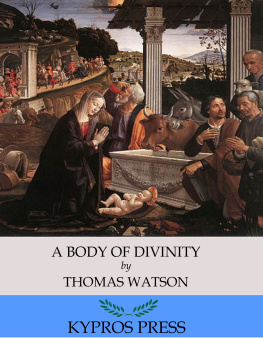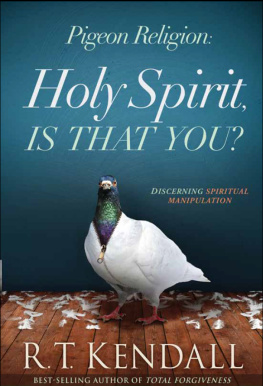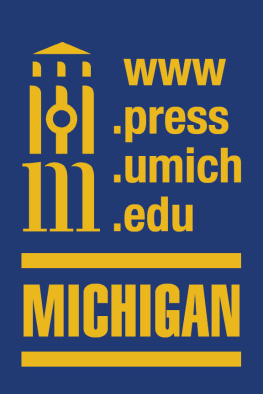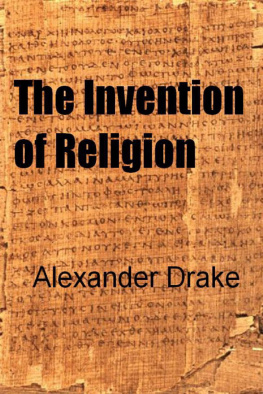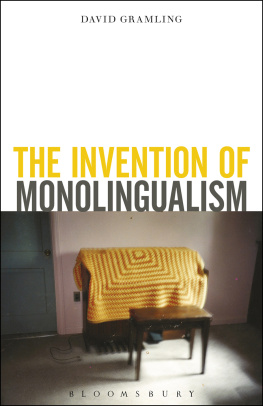ALSO BY DAVID F. NOBLE
America by Design:
Science, Technology, and
the Rise of Corporate Capitalism
Forces of Production:
A Social History of
Industrial Automation
A World Without Women:
The Christian Clerical Culture
of Western Science
Progress Without People:
New Technology, Unemployment
and the Message of Resistance
THIS IS A BORZOI BOOK
PUBLISHED BY ALFRED A. KNOPF, INC .
Copyright 1997 by David F. Noble
All rights reserved under International and Pan-American Copyright Conventions. Published in the United States by Alfred A. Knopf, Inc., New York, and simultaneously in Canada by Random House of Canada Limited, Toronto. Distributed by Random House, Inc., New York.
http://www.randomhouse.com/
Library of Congress Cataloging-in-Publication Data
Noble, David F.
The religion of technology: the divinity of man and the spirit of invention / by David F. Noble. 1st ed.
p. cm.
eISBN: 978-0-307-82853-8
1. TechnologyReligious aspectsChristianity. 2. Religion and Science. 3. Presence of God. I. Title.
BR115.T4N63 1997
261.56dc21 96-48019
v3.1
FOR SOPHIE TENZER NOBLE
This, then, is what the arts are concerned with, this is what they intend, namely, to restore within us the divine likeness.
HUGH OF ST. VICTOR
We are agreed, my sons, that you are men. That means, as I think, that you are not animals on their hind legs, but mortal gods.
FRANCIS BACON
CONTENTS
ACKNOWLEDGMENTS
I would like to thank the following people for inspiring, instructing, and otherwise indulging me during the course of this effort: Phil Agre, Andrew Chaiken, Tracy Clemenger, Ted Daniels, Ashbel Green, Bert Hall, Sandra Harding, Stefan Helmreich, David Hess, Tom Hughes, Andrew Kimbrell, Jeff Kruse, Roger Launius, Kevin McGuire, Leonard Minsky, Mary Jo OConnor, George Ovitt, J. D. Pipher, Lee Saegesser, Jan Sapp, Daniel Schenker, Don Stevens, and especially Douglas Noble, Mary Ann OConnor, and Margaret Wertheim. I would also like gratefully to acknowledge the support of the Social Sciences and Humanities Research Council of Canada.

INTRODUCTION
TECHNOLOGY AND RELIGION
We in the West confront the close of the second Christian millennium much as we began it, in devout anticipation of doom and deliverance, only now our medieval expectations assume a more modern, technological expression. It is the aim of this book to demonstrate that the present enchantment with things technologicalthe very measure of modern enlightenmentis rooted in religious myths and ancient imaginings. Although todays technologists, in their sober pursuit of utility, power, and profit, seem to set societys standard for rationality, they are driven also by distant dreams, spiritual yearnings for supernatural redemption. However dazzling and daunting their display of worldly wisdom, their true inspiration lies elsewhere, in an enduring, other-worldly quest for transcendence and salvation.
With the approach of the new millennium, we are witness to two seemingly incompatible enthusiasms, on the one hand a widespread infatuation with technological advance and a confidence in the ultimate triumph of reason, on the other a resurgence of fundamentalist faith akin to a religious revival. The coincidence of these two developments appears strange, however, merely because we mistakenly suppose them to be opposite and opposing historical tendencies.
Ever since the eighteenth-century Enlightenment, which proclaimed the inevitable secularization of society, it has generally been assumed that the first of these tendencies would historically supersede the second, that the advance of scientific technology, with its rational rigors grounded in practical experience and material knowledge, signaled the demise of religious authority and enthusiasm based upon blind faith and superstition. Religion, presumably, belonged to the primitive past, secular science and technology to the mature future. Yet today we are seeing the simultaneous flourishing of both, not only side by side but hand in hand. While religious leaders promote their revival of spirit through an avid and accomplished use of the latest technological advances, scientists and technologists increasingly attest publicly to the value of their work in the pursuit of divine knowledge.
Viewed from a larger historical perspective, there is nothing so peculiar about this contemporary coincidence, for the two tendencies have actually never been far apart. What we experience today is neither new nor odd but, rather, a continuation of a thousand-year-old Western tradition in which the advance of the useful arts was inspired by and grounded upon religious expectation. Only during the last century and a half or so has this tradition been temporarily interruptedor, rather, obscuredby secularist polemic and ideology, which greatly exaggerated the allegedly fundamental conflict between science and religion. What we find today, therefore, is but a renewal and a reassertion of a much older historical tradition.
Some contemporary observers have argued, echoing generations of religious apologists, that the resurgence of religious expression testifies to the spiritual sterility of technological rationality, that religious belief is now being renewed as a necessary complement to instrumental reason because it provides the spiritual sustenance that technology lacks. There is perhaps some truth to this proposition, but it still presupposes the mistaken assumption of a basic opposition between these two phenomena and ignores what they have in common. For modern technology and modern faith are neither complements nor opposites, nor do they represent succeeding stages of human development. They are merged, and always have been, the technological enterprise being, at the same time, an essentially religious endeavor.
This is not meant in a merely metaphorical sense, to suggest that technology is similar to religion in that it evokes religious emotions of omnipotence, devotion, and awe, or that it has become a new (secular) religion in and of itself, with its own clerical caste, arcane rituals, and articles of faith. Rather, it is meant literally and historically, to indicate that modern technology and religion have evolved together and that, as a result, the technological enterprise has been and remains suffused with religious belief.
Perhaps nowhere is the intimate connection between religion and technology more manifest than in the United States, where an unrivaled popular enchantment with technological advance is matched by an equally earnest popular expectation of Jesus Christs return. What has typically been ignored by most observers of these phenomena is that the two obsessions are often held by the same people, many among these being technologists themselves. If we look closely at some of the hallmark technological enterprises of our day, we see the devout not only in the ranks but at the helm. Religious preoccupations pervade the space program at every level, and constitute a major motivation behind extraterrestrial travel and exploration. Artificial Intelligence advocates wax eloquent about the possibilities of machine-based immortality and resurrection, and their disciples, the architects of virtual reality and cyberspace, exult in their expectation of God-like omnipresence and disembodied perfection. Genetic engineers imagine themselves divinely inspired participants in a new creation. All of these technological pioneers harbor deep-seated beliefs which are variations upon familiar religious themes.
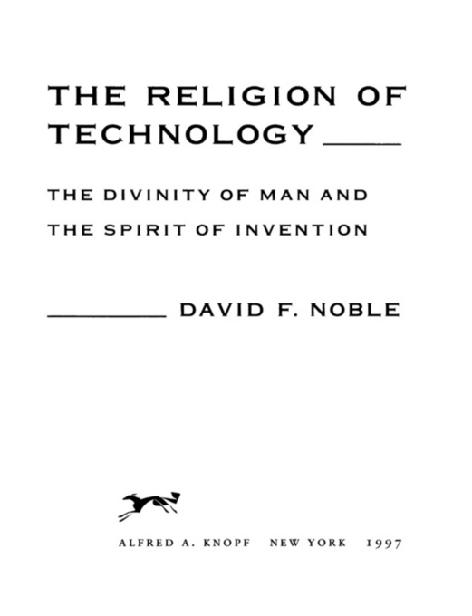
 INTRODUCTION
INTRODUCTION
